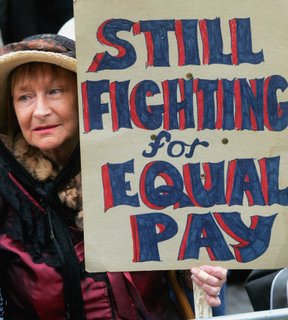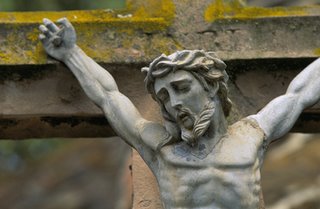 I went with some friends to watch The Da Vinci Code over the weekend. I’d read the book and spent some time researching the historical validity of some of Ron Brown’s assertions. I felt seeing the movie would help me engage people in conversations about Jesus and the Bible.
I went with some friends to watch The Da Vinci Code over the weekend. I’d read the book and spent some time researching the historical validity of some of Ron Brown’s assertions. I felt seeing the movie would help me engage people in conversations about Jesus and the Bible. Lots I could say about the movie…but one of the “adds” not in the book was a rant by one of the characters accusing nearly all of society’s ills (including racism and sexism) on the Church. This obvious cheap-shot at the greatest source of societal improvement throughout history was so misinformed – and yet so widely believed – that I felt compelled to respond. Clearly, the Church has made significant, frequent mistakes. But even a quick view of education, health facilities, and social services in this country reveals an indisputable record of service by the Church.
The movie’s focus was largely on the issue of the Church’s oppression of women, which was especially disturbing since Jesus, and those who followed him, lifted women in their culture from a place of non-personhood to a place of honor.
Peter and John and Paul and the early leaders of the church did not oppress women, as Brown claims, but actually lifted them out of oppression.
3 examples:
1. Jesus stood up to unjust treatment of women (as in the story of the woman caught in adultery).
2. Jesus accepted worship from women in a religious culture which relegated women to the outer circle (as in the “sinful woman” who anoints Jesus’ feet with perfume, and her own tears).
3. in a culture where women were not accepted as valid witnesses in a court of law, the first witnesses of the empty tomb and first messengers of Jesus’ resurrection were women (see Luke 24).
Here’s the bottom line:
If the resurrection is real, then Easter was the first day of the new world – a world where all of creation is being restored to its original purpose.
So Jesus’ treatment of women moves so far beyond a “women are equal thing.”
For Jesus, it’s not about being equal. It’s about being whole.
He stands up for the woman caught in adultery and offers her mercy rather than judgment to make her whole.
He receives worship from women who love him and know that they need him to make them whole.
He reveals the truth of his resurrection and gives women a message of hope to make them whole.
The resurrection is not about giving you the same rights as that person or the same privileges as that person – that kind of understanding just completely misses the point. The resurrection is about making you the person you were created to be. It’s not about being equal. It’s about being whole.
